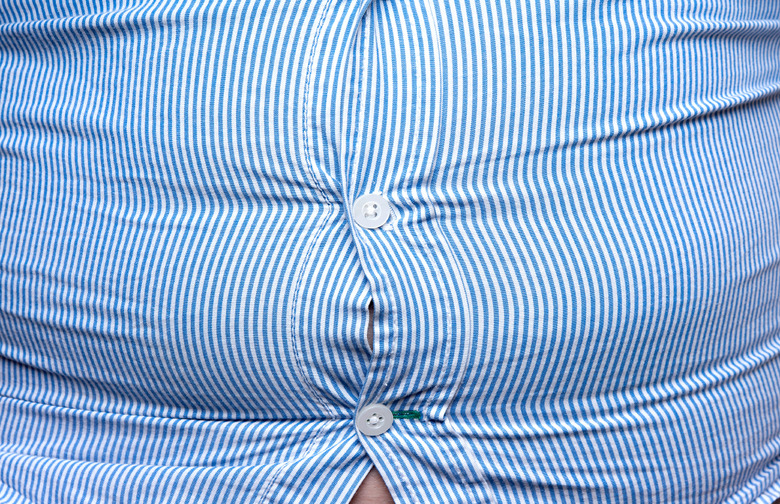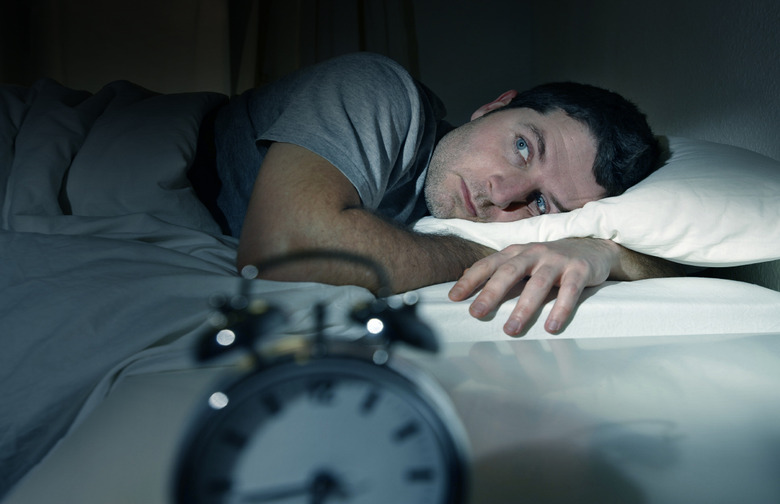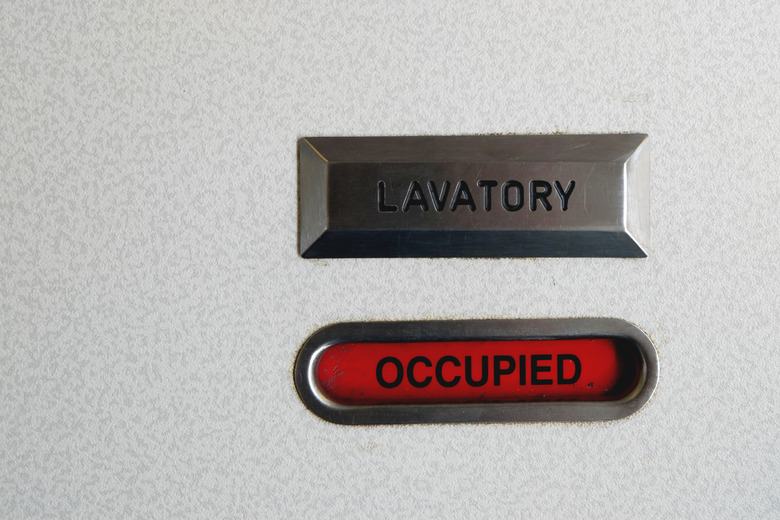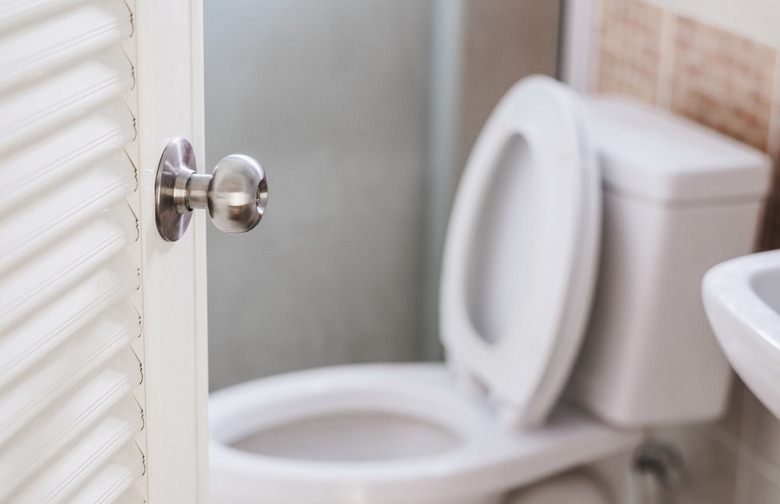This Is What Happens To Your Body When You Eat Too Much Protein Slideshow
When you think of a bodybuilder, you probably think of someone who's holed up in the weight room all day and who guzzles shaker bottle after shaker bottle of protein. Fitness enthusiasts and diet-promoters everywhere have been touting protein as the magic solution for weight loss and physical fitness for some time, neglecting to account for any possible drawbacks to overconsumption.
The urban legend is that protein has a direct correlation with muscle gain — that the more protein you eat, the more muscle you build.
But as it turns out, that's not entirely true. In fact, it's not true at all. There's a protein threshold, a level of dietary protein intake beyond which you don't receive any of the muscle-building benefits. You can actually experience some adverse side effects to overdoing it, including indigestion, hormone disruption, and even weight gain. We did our research and broke it down for you, so you can tell when you've eaten too much.
It’s Stored as Fat
Just like it does with any other excess nutrient, your body takes excess protein and stores it as energy for later — aka fat. Your body only requires a certain amount of protein at one time. When it can't use the rest of it, it converts the excess calories to stored fat.
You Could Go Into Ketosis
Ketosis, the condition behind bodybuilders' go-to keto diet, occurs when you eat way too much protein and not enough carbs. When your body doesn't have any carbs to use as energy, it resorts to protein and stored reservoirs of fat instead (this is the theory behind the diet's 'fat burning' potential). Ketosis can actually decrease your athletic performance. It can also increase the acidity of your blood, leading to ketoacidosis — a condition that, in extreme cases, can be fatal.
Your Kidneys Go Into Overdrive
When you digest protein, your kidneys go to work eliminating waste products from your system. So when you ingest a large amount of protein at one time, your kidneys can become stressed with the large task of filtering all that waste. Kidney strain, over a prolonged period of time, can lead to kidney disease; so it's important to be mindful of your protein intake.
You Feel Overly Thirsty
Thirst is a sign of kidney strain or damage. Metabolizing of protein produces nitrogen waste, which is also a side effect of dehydration. Your body can interpret the excess protein as dehydration, regardless of whether you're actually dehydrated, resulting in you feeling thirsty even after you drink water.
Your Breath Smells
Another sure sign of ketosis is odorous breath. Ketones, a by-product of the condition, smell potent at best and chemical at worst. But ketosis isn't the only way a high-protein diet contributes to a stinky mouth. If you were around during the days of the Atkins diet, you probably remember this unfortunate side effect — eating a lot of meat can make your mouth a festering ground for the smelly bacteria responsible for bad breath.
You Get Bloated
Any food with extremely high protein content is likely to cause indigestion — all the work your stomach has to do to break down protein releases gases as a by-product, which can cause bloating. You might want to avoid loading up on protein before putting on your swimsuit.
You Feel Nauseous
When your digestive enzymes can't keep up, nausea may occur. High-protein foods aren't easy for your stomach to digest, and the effort can cause nausea alongside bloating.
You’re Never Hungry
An increased intake of protein can wreak havoc on your digestive hormones. Basically, you're getting too much of one thing and, unless you're seriously overeating, not enough of another. The contrast confuses your hunger signals because your body isn't sure if it should be hungry or not. The result is wacky hunger signals that sometimes feel like appetite suppression.
You Feel Depressed
If you're eating a ton of protein, you're probably not also eating the appropriate amount of carbs. Eating a high-protein, low-carb diet suppresses the happy hormone serotonin, which regulates your mood and counteracts depression. If you're feeling significantly depressed, there are foods you can eat to fight back against the blues.
You Feel Fatigued
Low-carb, high-protein also means low-energy, high-effort for your body. It has to work way harder to digest that protein, and it has to work harder to use the energy from the protein's calories. Your body goes to carbs first, and when it's deprived of them it starts to metabolically slow down. This can result in a sluggish, fatigued feeling that can sometimes be so intense that it's obstructive to daily life.
Your Blood Sugar Fluctuates
Protein requires insulin for metabolism. Since insulin is the hormone responsible for regulating your blood sugar, using an excess of it can disrupt your body's natural blood glucose. According to a report on protein and diabetes, "large amounts of protein have the potential to contribute to glucose production [and] minimally increase blood glucose levels." So if you don't want to experience a mean mid-afternoon crash, it's wise not to overdo it.
You Become Constipated
Again: Protein is hard to digest. All the effort is bound to cause some blockage. Additionally, fiber from whole grains and other carb sources, such as fruit, is necessary to keep your digestion regular. If you're eating tons of protein, you're likely displacing your carbs and lacking in those essential nutrients.
You Have to Pee All the Time
This is a side effect of kidney struggle, and the body's false signals that you're thirsty when you're not. Protein breakdown results in a release of nitrogen, which signals to the brain that you need water. Drinking too much water also makes your kidneys work harder — you'll probably be running to the bathroom shortly after you drink a glass.
You Don’t Gain Any More Muscle Than Usual
The whole "more protein equals more muscle" thing is a myth. According to Nancy Rodriguez, PhD, RD, your body's ability to convert protein's amino acids into muscle has a limit of 30 grams of the macronutrient. Thirty grams of protein is the equivalent of 3/4 of a cup of diced chicken breast. Any more than that and you're just adding digestive stress — and calories — to your meal.
You Increase Your Risk of Disease
There have been hotly contested debates about whether a high-protein diet contributes to disease risk. It turns out that it does — but only if you're eating large amounts of animal protein. Plant proteins, such as the kind in quinoa or beans, leave you in the clear. Diets high in animal protein, however, have been linked to increased risk of cancer, heart disease, and other causes of death.















